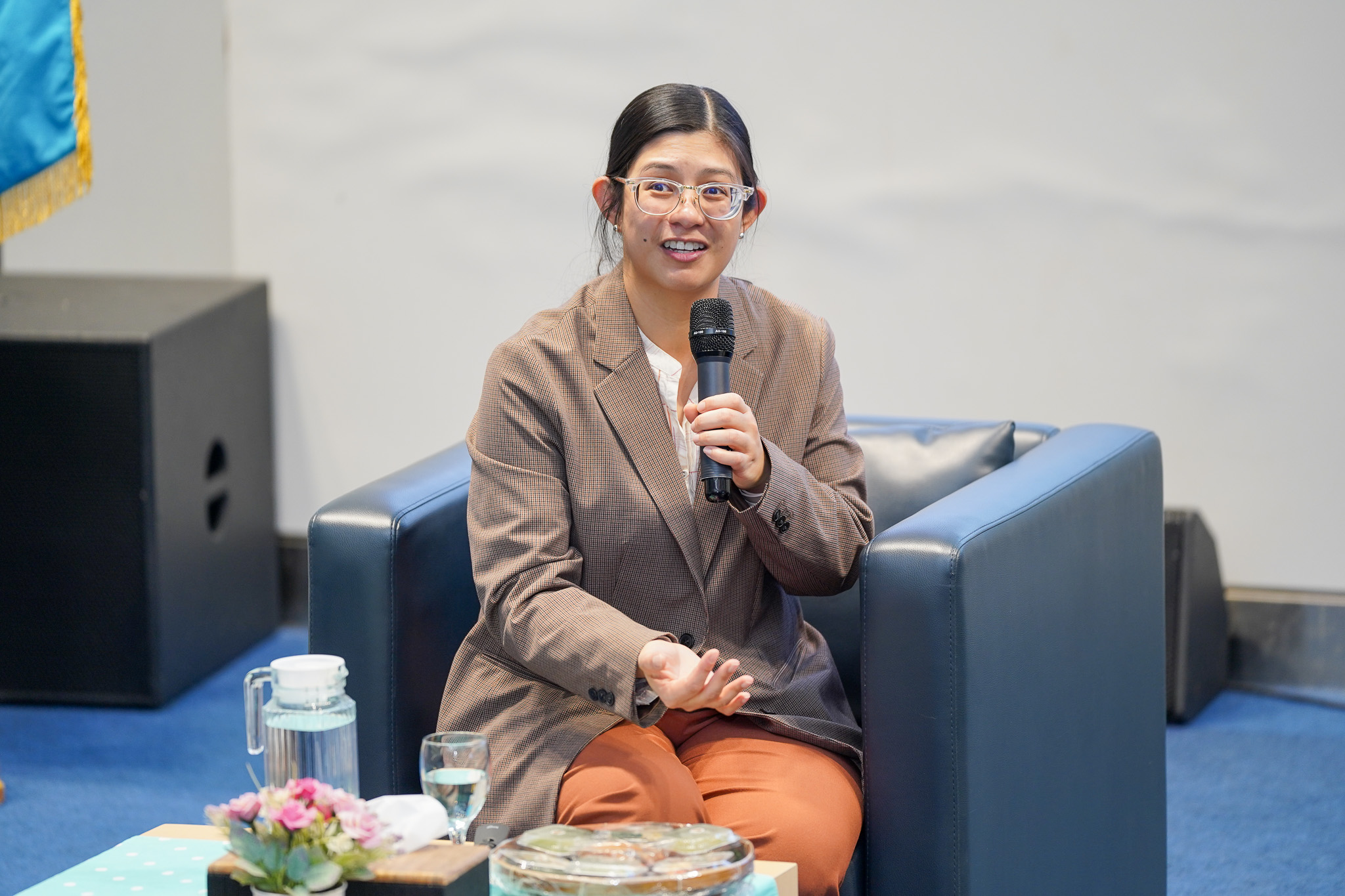May 10, 2025
Contributor: Supriyono | Editor: Dadi Darmadi | Photo: Achmad Jatnika

At the 4th Annual Conference on Assessment and Evaluation hosted by the UIII Faculty of Education, Associate Professor Joanna Tai of Deakin University delivered a thought-provoking keynote titled “Designing Assessment for Inclusion: How Does Culture Fit In?” Her message was clear: inclusive assessment must go beyond fairness in form and structure; it must account for the cultural contexts that shape learning, expression, and success.
Drawing from her research at the Centre for Research in Assessment and Digital Learning (CRADLE), she reconsidered long-held assumptions about objectivity and equality in academic assessment. “Assessment should recognise diversity in student learning and endeavour to ensure that no student is discriminated against by virtue of features other than their ability to meet appropriate standards,” she quoted her 2023 co-authored publication. But she followed with a more pressing question: “What about culture?”
In her keynote, Assoc. Prof. Tai unpacked hidden cultural assumptions in common assessment practices. Assessment, she argued, is not culturally neutral. Academic traditions, societal values, and educational systems all shape how students are expected to demonstrate knowledge. Yet, despite its significance, her research revealed a critical gap: most literature on assessment and inclusion fails to explicitly define “culture.”
A scoping review she conducted for relevant publication between 2005 and 2025 found only nine studies that meaningfully addressed cultural dimensions of assessment, despite the global push for equity and diversity in higher education. She also highlighted that the definitions of culture in the relevant literature were just assumed and not explicit.
She then introduced a set of emerging design principles for cultural inclusion in assessment, saying that, first, assessment must be future-oriented, preparing students for their real-world, context-specific futures. Second, it should foster shared social understanding, encouraging dialogue and reflection among students and educators about what is valued in learning—and why.
Assoc. Prof. Tai further advocated for collaborative assessments that promote intercultural exchange, especially in multicultural classrooms. For this, she introduced three strategies for assessment design, encapsulated in authenticity, programmatic view, and distinctiveness.
Authenticity in assessment, she said, involves aligning tasks with students’ values and goals (authenticity to self), setting clear expectations (authenticity of task), recognizing differing perceptions (designed vs perceived authenticity), and including diverse students in design (authenticity in our values).
For the programmatic view of assessment, she encouraged that learning outcomes are scaffolded over time, and not everything has to be assessed at every occasion. Meanwhile, distinctiveness highlight that students should be prepared for their unique destinations, utilizing open-ended tasks to develop their distinct capabilities and offering a variety of ways to demonstrate learning aligns with Universal Design for Learning.
Assoc. Prof. Tai’s keynote concluded with a reminder that designing assessment for inclusion is not a one-off event, but an ongoing, systemic process. It involves multiple stakeholders, continuous dialogue, and a willingness to challenge entrenched academic norms. Her presentation sparked thoughtful discussion throughout the conference and set a transformative tone for UIII’s broader vision of equitable, culturally responsive education.
Universitas Islam Internasional Indonesia